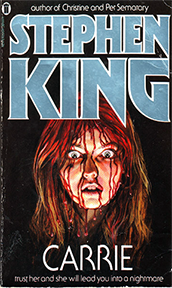Even the most compelling writing and subject can fail if you let the small irritations get in the way of that connection with your reader. Make your writing worth reading and take it from good to great by avoiding these seven pitfalls.
1. Poor organization.
If your reader can’t follow your line of reasoning or organization, they will eventually give up. The writer may not have created a beginning, middle, and end that readers get hooked on and want to take to the end. As a writer, you are taking your readers on a journey, so don’t lose them.
2. Passive voice.
When an author lacks confidence in what she is saying or in her expertise, there is a tendency to write in passive voice: “The boat was overturned” versus “I overturned the boat.” Passive voice is a legitimate writing tool, but authors employ it to avoid their own power. Used this way, it undermines the strength of the material.
3. Limited vocabulary.
A book is a two-dimensional medium, so it is up to the writer to deliver the words to paint a picture that becomes three-dimensional in the mind’s
eye. This is just as true for a nonfiction book as a novel. If the words are trite or uninteresting, the book becomes forgettable.
4. Poor sentence structure and grammar, misspellings, incorrect abbreviations and
capitalization.
If you make mistakes here, the reader may assume your ideas are in error too.
5. Writing that isn’t tight.
You may find that you ramble when you write a first draft, so then you go back and take out the extra words and shorten sentences. For example: “I’ve often thought that we should consider what we want out of life so we won’t make so many mistakes.” Translation: “Consider what you want from life to avoid mistakes.”
6. Trite phrases.
For example: “As I’ve always said….”. We don’t need to know what you’ve always said. Just tell us what you want us to know.
7. Over-emotionalism.
The more clearly you can tell a story straight out and let the reader become emotional, the more effective the story will be to make your point. That
doesn’t mean you can’t use words to make a story poignant and meaningful; it just means you don’t tell the reader how to feel about the events. Tell how you feel only. A sign of this is when a writer uses exclamation points throughout his or her book. If you use more than one exclamation point per chapter, you’ve probably used too many. Another amateur mistake is words with all capital letters, the written equivalent of shouting. It is much
more effective to talk softly.
Readers are trained from good experiences to be open to your book from the start. Don’t dash their optimism with poor writing. It takes just as much time to rewrite and polish a book as it does to write the first draft. Know that, expect it, and spend the time necessary to make your work great.
About the Author
Gail Richards is founder of http://www.AuthorSmart.com a dynamic website connecting aspiring authors with the classes, audio library, tools, information and resources needed to make smart, informed decisions at each step in the nonfiction book publishing journey. Jan King is the founder of http://www.eWomenPublishingNetwork.com a membership organization devoted to supporting and coaching women who become successfully published nonfiction authors.


